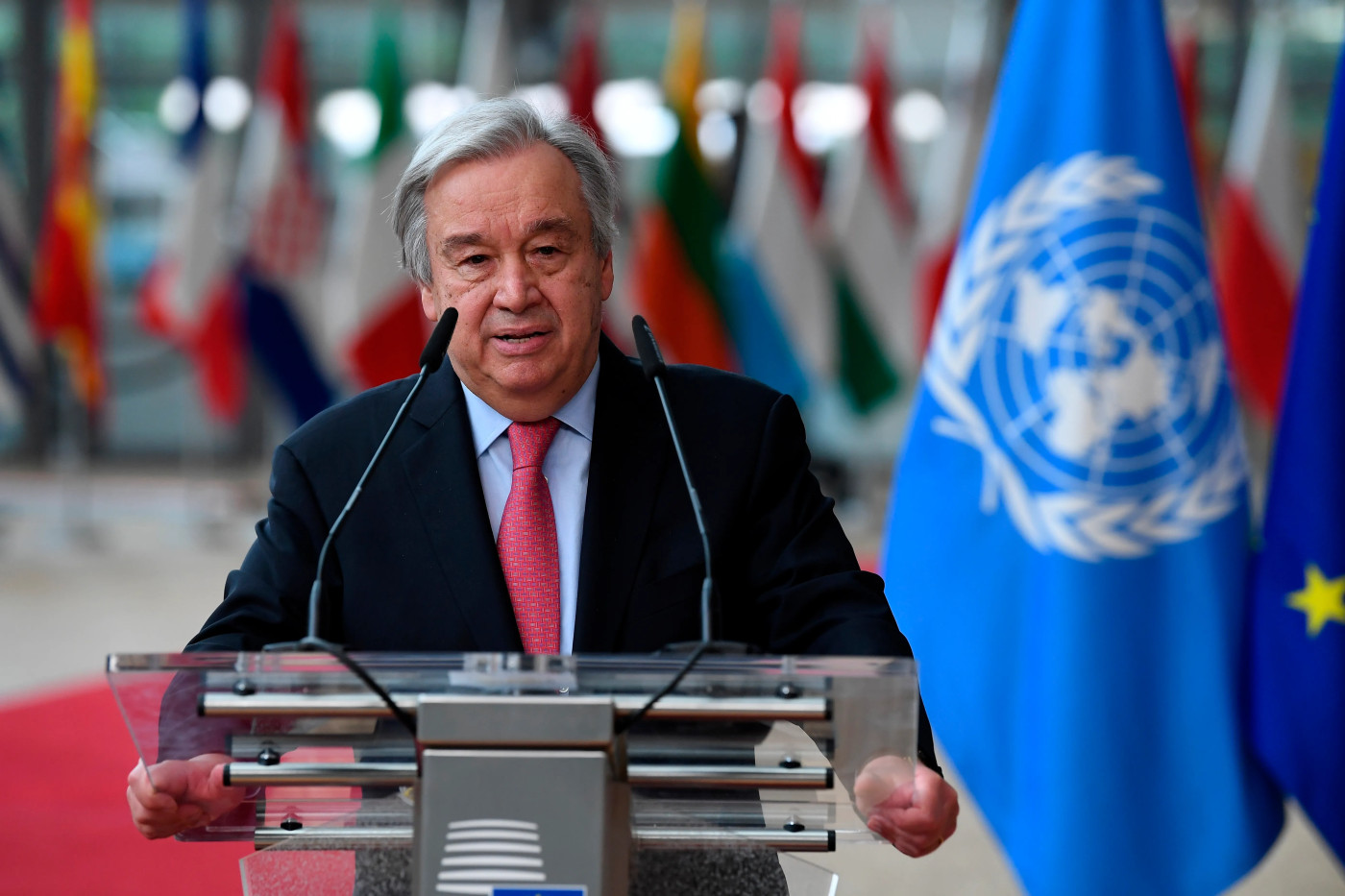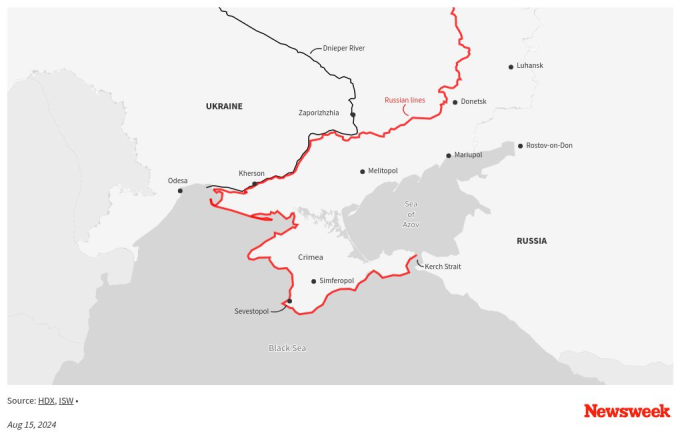Hamas Says Biden 'Buying Time' on Gaza Talks to Ease Tensions for Election
A senior Hamas official has told Newsweek that the White House was offering an overly positive portrayal of the latest ceasefire talks on Gaza in a bid to ease regional tensions ahead of the upcoming U.S. presidential election.
"The Americans want to buy time to cool down the regional front for internal electoral reasons," Basem Naim, a spokesperson and former health minister of Hamas, told Newsweek.
Naim also echoed the words of fellow spokesperson Sami Abu Zahri, who told Reuters earlier Friday that "the American administration is trying to spread a false positive atmosphere and is not serious about stopping the war."
The comments come as President Joe Biden's administration pushes for a breakthrough in long-stalled Israel-Hamas ceasefire talks now taking place against the backdrop of threats from Iran of vengeance against Israel over the unclaimed killing of Hamas Political Bureau leader Ismail Haniyeh in Tehran late last month.
Speaking to reporters on Friday, a senior Biden administration official warned of "serious consequences" for Iran should it carry out such an attack, but otherwise provided one of the most hopeful reactions yet to the latest round of Gaza negotiations being held in the Qatar capital of Doha. The official said the goal was to reach a deal "over the coming week."
As for reactions from Hamas, the senior Biden administration official stated, "I wouldn't take anything too seriously."
The agreement was first outlined by Biden in late May and promoted as the most viable path toward ending the conflict that began last October with a Hamas-led surprise attack on Israel.
Around 1,200 people were killed and around 240 more taken hostage during the unprecedented attack conducted by Hamas, according to Israeli officials. More than 40,000 people have since been killed in the ensuing war in Gaza, according to the Palestinian Health Ministry based in the Hamas-led territory.
The deal, as outlined by Biden and backed by a U.N. Security Council resolution in June, would first implement a six-week pause in fighting, a prisoner swap, a surge in humanitarian aid in Gaza and an Israeli withdrawal from densely populated areas of the Palestinian territory. The following stages would lead to a total cessation of hostilities, the release of all remaining hostages held by Hamas, a full Israeli withdrawal and a reconstruction plan for Gaza.
Representatives of Israel and Hamas have offered conflicting details over the contents of the deal, however, and have accused one another standing in the way of progress. Meanwhile, clashes have continued across Gaza and Israeli officials have vowed to continue the war until all hostages were freed and Hamas was decisively defeated.
The senior Biden administration official confirmed Friday that both sides had weighed in on the proposal throughout the process.
"On July 3, Hamas came back with a response with a number of changes, many of which were not acceptable, but many of which were based for further discussion, and Israel on July 27 issued some clarifications to the text," the senior Biden administration official said. "And basically, what we've done is taken the gaps that remain and have bridged those in a way that we think basically is a deal that is now ready to close and implement and move forward."
Still, the official acknowledged, "there is still more work to do."
The reaction from Hamas, which is not directly participating in the latest round of negotiations and is instead being represented by the Qatari and Egyptian delegations, was far less positive.
A statement shared with Newsweek and attributed to a leading source in Hamas expressed that the group was "informed by the mediators of the results of the last round of talks in Doha, and the new American proposal, which responds to the Israeli occupation's conditions and aligns with them."
"We have confirmed once again that the occupation does not want to reach an agreement and continues to evade and obstruct it," the statement said, "and insists on adding the new conditions it announced to obstruct the agreement."
"Hamas confirms its commitment to what it agreed to on July 2, which is based on the Biden Declaration and the Security Council resolution," the statement added. "Hamas calls on the mediators to pressure the Israel government and oblige it to implement what was agreed upon."
The source also asserted that "any agreement must guarantee the cessation of aggression against our people, withdrawal from the Gaza Strip, provision of urgent relief in the form of food and medicine, and reaching a real deal to exchange prisoners."
The Israeli government did not immediately issue any official reaction to the talks.
As Naim and other Hamas officials accused Israeli Prime Minister Benjamin Netanyahu of repeatedly adding "new conditions" to obstruct a deal, Israeli Foreign Ministry special envoy Fleur Hassan-Nahoum told Newsweek earlier this week that "the conditions that Israel has, it's had all along."
"We're not going to allow armed terrorist to go back to the north of Gaza. We have to block the Philadelphi route," she said at the time, "and Hamas has to go."
Newsweek has reached out to the Office of the Israeli Prime Minister. The White House referred Newsweek to the comments made by the senior administration official on Friday's call.
The 10-month war has sparked a regional crisis, with factions of the Iran-aligned Axis of Resistance conducting regular attacks on Israel from Lebanon, Iraq and Yemen. Iran also launched an unprecedented direct missile and drone barrage against Israel in April after the killing of its senior military officials at a consular building in Syria.
Now, Haniyeh's assassination in Tehran and the Israeli killing of top Hezbollah military official Fouad Shukr in Beirut less than a day earlier has fueled calls for another, potentially larger-scale strike against Israel.
The conflict and growing threats of instability across the Middle East have also emerged as a top foreign policy issue in the coming U.S. presidential election. With Biden having announced last month that he would not stand for reelection, Vice President Kamala Harris is set to face former President Donald Trump this November.
Trump, a staunch ally of Netanyahu while in office, has criticized Biden's handling of the conflict, repeatedly asserting during rallies that Hamas would have never attacked Israel if he was in office as a result of his hard-line policies against Iran.
Speaking at a campaign event in New Jersey on Thursday, however, Trump said he hoped "to be friendly" with Iran.
Trump has also criticized issued occasionally criticisms of Netanyahu's handling of the war. At the same New Jersey rally, Trump said he told the Israeli premier during their meeting last month that the war "has to stop, the killing has to stop" and that he should "get it over with."
Trump also criticized his Democratic opponent, Harris, for "always demanding a ceasefire."
Addressing pro-Palestinian protesters during a rally in Arizona last week, Harris stated that "now is the time to get a ceasefire deal and get the hostage deal done."
This is a developing news story. More information will be added as it becomes available.
Disclaimer: The copyright of this article belongs to the original author. Reposting this article is solely for the purpose of information dissemination and does not constitute any investment advice. If there is any infringement, please contact us immediately. We will make corrections or deletions as necessary. Thank you.


